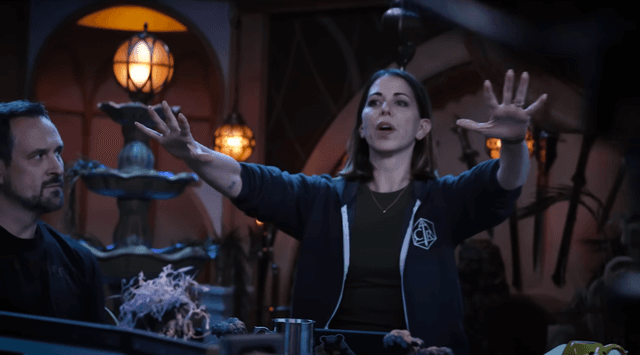If you click on a link and make a purchase we may receive a small commission. Read our editorial policy.
Is the Marvel Spotlight banner what Marvel Studios claimed it was for the MCU? Not based on what happened this week
The five-part Disney+ series wasn't as standalone, or even as grounded, as fans were lead to believe

When the five-part Echo series dropped on Disney+ and Hulu earlier this week, it wasn’t just a new Marvel Studios making its debut, but the Marvel Spotlight banner — a branding that, when announced, was explained by Marvel head of streaming Brad Winderbaum as “a platform to bring more grounded, character-driven stories to the screen, and […] focusing on street-level stakes over larger MCU continuity.” It’s a welcome shift from the studio that once proudly announced “It’s all connected” and asked audiences to keep up with everything, but… does Marvel Spotlight live up to its billing?
Based on the evidence of Echo, the answer is a resounding 'no.'
It’s not just that Echo is itself a spin-off from a pre-existing MCU project — she debuted in Hawkeye in 2021, and her story here is a direct result of events in that series; there’s even a flashback to the earlier show in the first episode — although that certainly acts against the idea that there’s less of a focus on “larger MCU continuity.” The villain of Echo is Wilson Fisk, AKA the Kingpin, which brought a new layer of reference to the show that pushed backwards and forwards: the series made reference to the Netflix Daredevil series (which may or may not be official MCU canon), and also ended with an explicit prologue to the upcoming Daredevil: Born Again series, as well as a plotline that might impact other MCU projects in the future.
(We’re not spoiling anything in this piece, but it’s worth pointing out that, should the MCU end up following Marvel’s comic book lead for this particular plot, it was something that ended up affecting a number of different series and characters, and resulting in a line-wide crossover event. Again, this sounds like the very opposite of something that is meant to focus on “street-level stakes over larger MCU continuity,” but that might just be us.)
It’s not as if new characters can’t be introduced in standalone stories — look at how Iron Man, Thor, Captain America, the Guardians of the Galaxy, Doctor Strange, and countless other cinematic heroes were first brought into the MCU; even in terms of spin-offs from pre-existing concepts, Disney+ shows like She-Hulk: Attorney-at-Law and Ms. Marvel proved to be more stand-alone than Echo ended up being. The true problem, ultimately, is that in both its beginning and its ending, Echo was sewn tightly into the larger MCU, with Echo’s own story feeling diminished as a result.
As a debut project for Marvel Spotlight, it’s a swing and a miss — a project that, ironically, probably would have benefited from playing up its connections to other MCU characters and canon more aggressively, at least in terms of promotion. It also fails to build confidence in the Spotlight brand, if this is what Marvel believes is the best foot forward in terms of standalone stories, or even grounded stories — after all, Echo gets a pretty significant power boost in the series that makes her a far more fantastic character than her comic book inspiration. Again, we’ve seen more grounded material elsewhere from Marvel before this.
As an idea, Marvel Spotlight is a good one. It’s arguably a necessary one, if Marvel wants to continue to grow and weather the storms of changing tastes and broadening demands from the audience. After Echo, the question really is… can Marvel be trusted to do Marvel Spotlight right?
That ending to Echo — and what it means to the MCU moving forward — gets explained right here.
Follow Popverse for upcoming event coverage and news
Find out how we conduct our review by reading our review policy
Let Popverse be your tour guide through the wilderness of pop culture
Sign in and let us help you find your new favorite thing.
















Comments
Want to join the discussion? Please activate your account first.
Visit Reedpop ID if you need to resend the confirmation email.